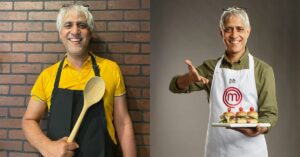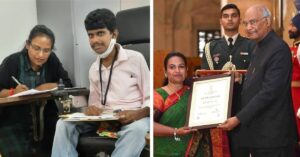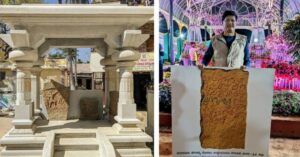Fruit Juice in Shells, Straws Made of Leaves: Bengaluru Café Sets Zero-Waste Goals!
From serving fresh and unsweetened natural juices in fruit shells to using steel, paper, banana leaf and now, wheat paste straws, the café has adopted several practices that set it apart from any regular eatery in Bengaluru.
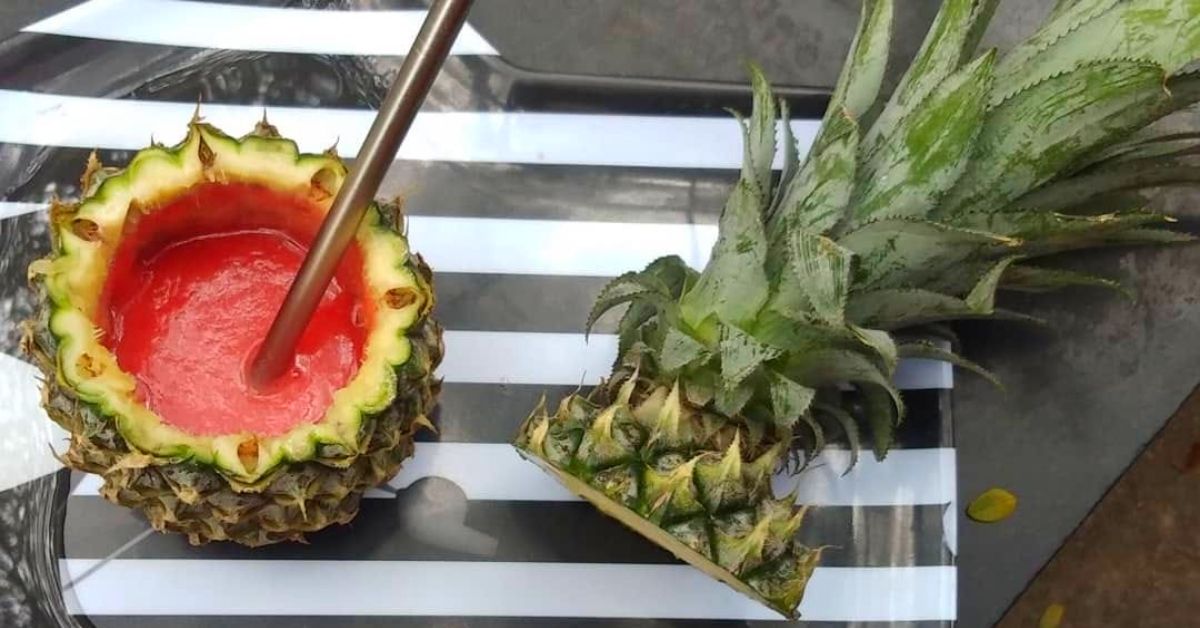
This article is part of #IndiansAgainstPlastic series. The Better India and Karnival.com are recognizing 5 heroes who are ensuring the fight against plastic is a battle to the finish, leading to a #PlasticFreeIndia
“Do you remember what your mom used to say while feeding you food when you were young? ‘Eat Raaja!’ That is precisely how the name my café located between two temples in Malleswaram came about,” beams former radio jockey turned entrepreneur, RJ Raaj.
Every drop makes the ocean and each plastic straw you use, lands up there. Check out eco-friendly alternatives on The Better India Shop that are good for you and the environment.
For more than 45 years, Eat Raaja was a humble juice shop run by Raaj’s father. After he passed away, Raaj left his successful 12-year-old radio career behind and took over.
The uniqueness of Eat Raaja goes much beyond its name. Different from any other cafés you may find in the vicinity, this one allows you to devour the taste of mom-cooked recipes by featuring offerings prepared with love by mothers.
But above all, it is also a zero-waste eatery!
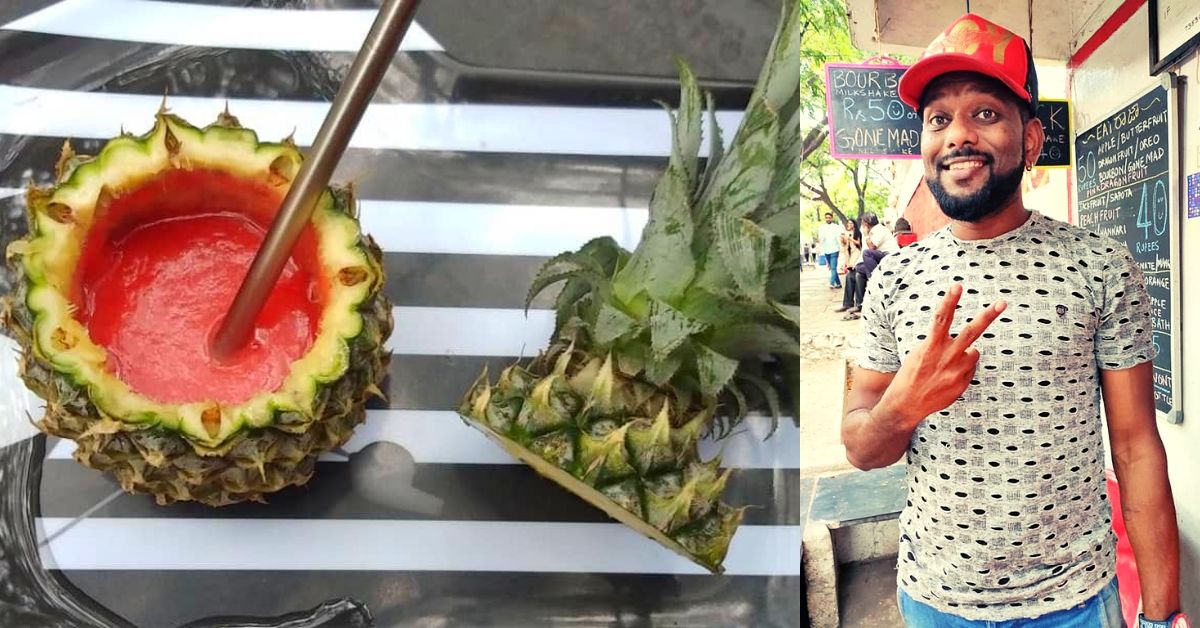
Yes, you heard that right.
From serving fresh and unsweetened natural juices in fruit shells to using steel, paper, and banana leaves, the café has adopted several practices that set it apart from any regular eatery in Bengaluru.
It not only composts its wet waste, but it also harnesses the power of citrus to make natural bio-enzyme cleaners and turns wet waste into eco-friendly compost and fertilisers.
In an exclusive interview with The Better India, Raaj mentions that this journey to zero waste began 13 months ago.
“Before that, I didn’t even know what the concept of zero- waste was. Having worked in radio for almost 12 years, I was already in touch with Vani Murthy and Meenakshi Bharath, who are the doyennes of waste management and were immensely instrumental in guiding me.”
How did the idea take inception?
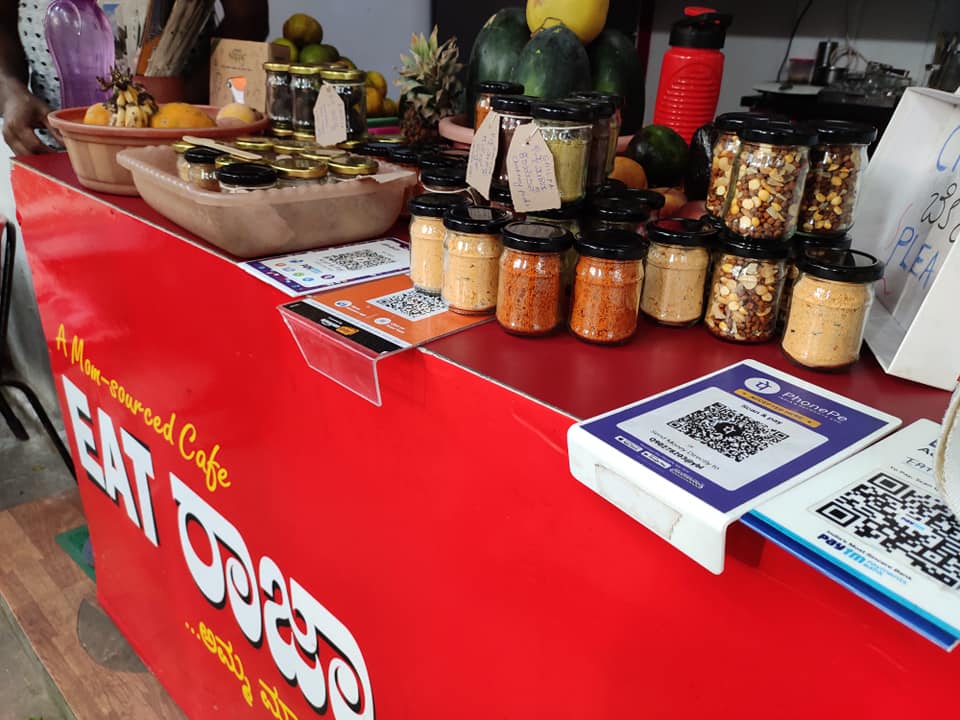
“Our shop is located in between two temples, both of which generate large amounts of waste, I often saw devotees, seek blessings there, come out and pollute our surroundings. Also, when my father ran the shop, he used single-use plastic cups, straws, PET bottles and carry bags. I began questioning these waste generation habits and decided that the only way forward was to start managing my waste in a sustainable way.”
Vani suggested Raaj begin with segregating the restaurant’s waste. While he was aware of the concept of composting, when Murthy told Raaj about how the citrus fruit waste from his shop could be used to create bio-enzymes or natural cleaners, he was left astounded.
There was no looking back.
“Ever since I have never used chemicals for washing my clothes, floors, and even the toilet. All the citrus is made into bio-enzyme, the rest of the fruit scraps would either go to make compost or be fed to cows.”
He makes almost 100 litres of bio-enzyme per month. These are sold separately in re-purposed beer bottles.
Raaj has also eliminated the use of single-use plastic and replaced them with glasses, and made the difficult business choice of saying no to PET bottles. This meant not only doing away with Cola bottles at the shop but also packaged water bottles, which were the biggest revenue earners.
Finally, he replaced straws with other alternatives such as paper straws, reusable steel straws, straws made from fallen banana leaves, bamboo straws and lately, wheat paste straws.
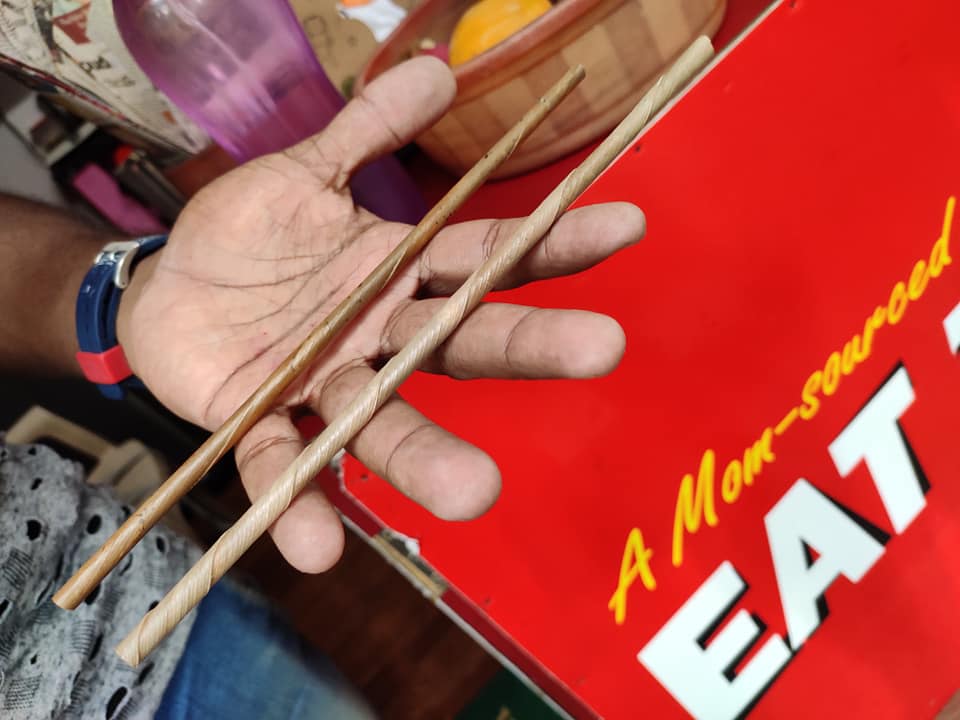
The café also stopped giving out any plastic or carry bags and encouraged customers to BYOB—bring your own bag.
Raaj also began a group on Facebook that has now become a huge tribe of conscious, sustainable living zero-wasters who share tips to adopt the lifestyle.
Apart from using steel, glass, and compostable cutlery, one of the most eye-catching innovations that Raaj, who calls himself a waste-engineer was able to bring about at the café was serving juices in fruit shells.
Shedding light on how the idea came about he says, “As a radio jockey you have to churn out new content every day, so the element of innovation and creativity was always there. I wanted to attract people. The idea came to me when I looked at the Kiran variety of watermelon, which is small in size. I picked it up and cut them into two and decided to use them as cups. The very concept of selling juice in the shell of the melon gained popularity among customers and marathon runners in no time. The use of the shell also ensured that I was saving 200 ml of water that would otherwise be used to wash a glass.”
He soon started branding the juice as a ‘zero-waste juice.’
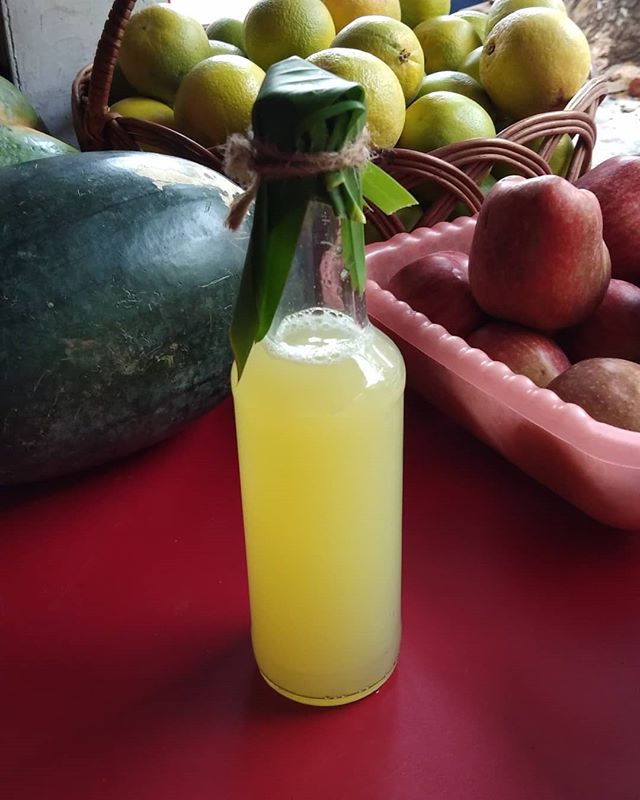
“Once the farmer harvests the fruit, he sells it to the middleman, who sells it to a shopkeeper. I buy it and sell juice to the customers in the shell. Once the customer drinks it, I either turn it into compost or feed it to the cows, who eat it, dispose of it in the form of dung which goes back and nourishes the soil. In Kannada, we have a saying that translates to, ‘What comes from the soil has to go back to the soil.’ And a simple activity like selling juice in a fruit shell closes this loop between nature and man without generating any carbon footprint.”
He then experimented with the concept with pineapple too, scooping the flesh out to turn it into juice and serve it in a shell with the crown as the lid. Without a doubt, it was a hit too.
Today he sells an array of fruit juices and milkshakes. Some of these include a combination of pineapple and watermelon, mint, lemon, musk melons, sun lemon (much like lemon, sweet and 20x the size of it), chakota, dragon fruit, grapefruit, banana gulkand, peach milkshake, etc.
He also uses a variety of marketing tactics to keep the customers interested. Like during the IPL 20-20 season, he sold some juices at Rs 20. He is now launching newer juices with curiosity peaking names. For example, kidney juice made from cantaloupe, since it is good for kidney stones. Other newer varieties that he seems to be tight-lipped about include cigarette juice and something known as the cancer-killing juice.
Also Read: 23-YO Bengaluru Woman Invents Machine That Segregates Waste Within Minutes!
To avoid the wastage of paper, all announcements in the café are made via a blackboard. The municipal truck that arrives to collect wet waste returns empty. Instead, he is making money out of it by selling bio-enzyme cleaners for Rs 100 a bottle.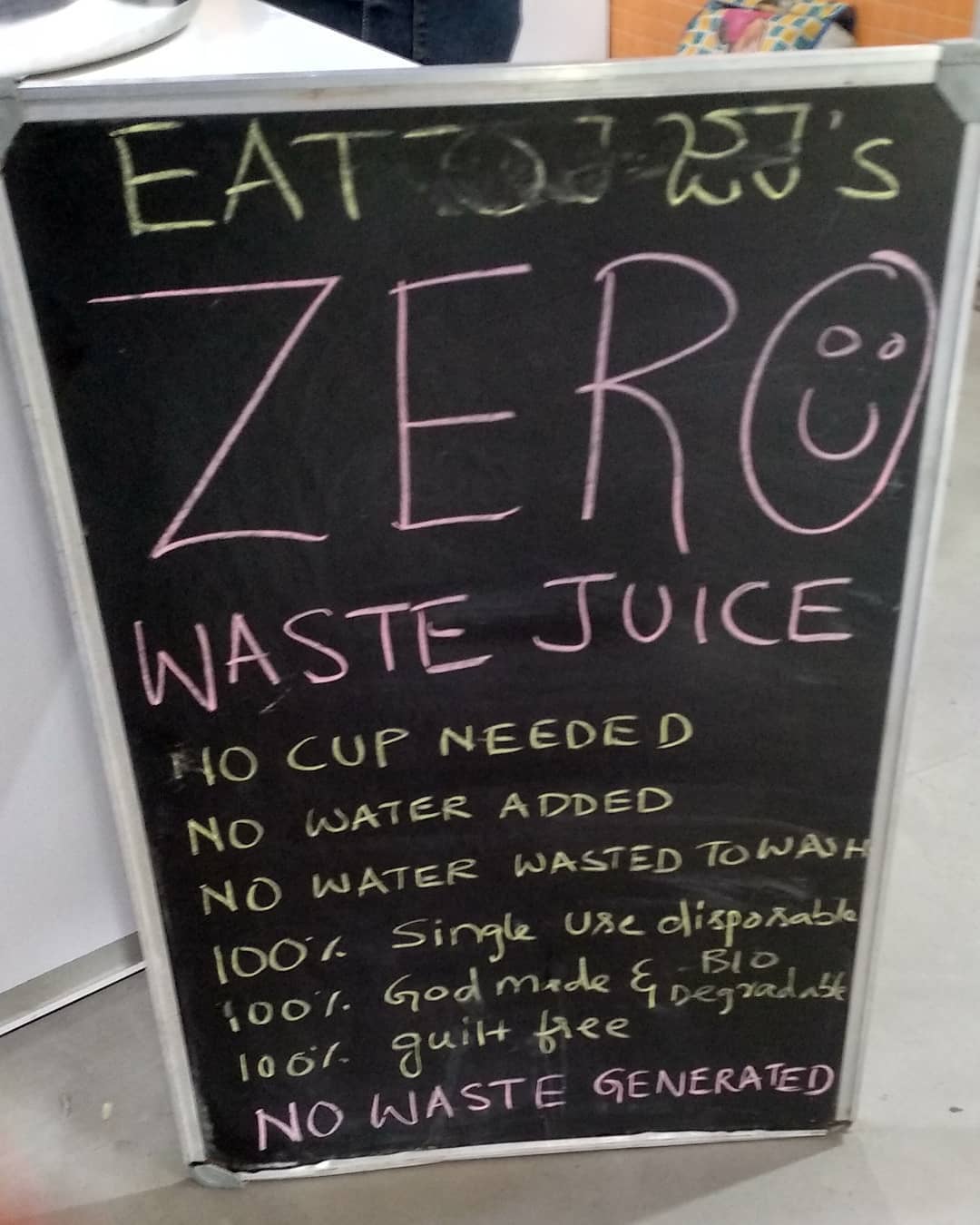
Raaj believes what he is selling at his shop is not just juice, but the concept of zero-waste. He also creates awareness about waste management through awareness programmes, and has interacted with students from more than 200 colleges.
He ends with a few simple tips for citizens who want to switch to a zero-waste lifestyle:
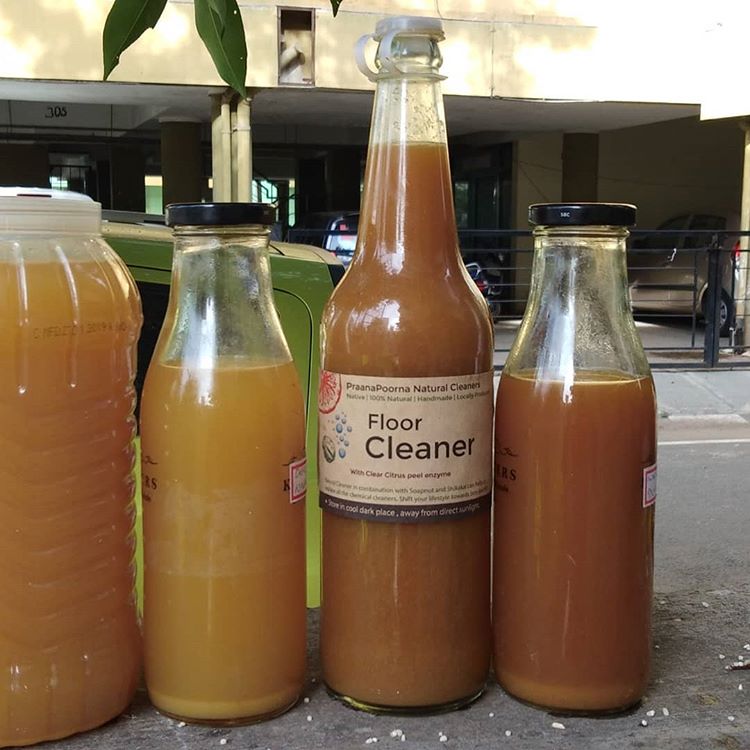
1) Refuse all single-use plastic disposable items. Start saying no to the polythene bags from your chaiwalla, vegetable vendors, fruit or flower sellers
2) Say no to plastic straws and PET bottles; carry your own steel straws, and glass or copper bottles.
3) Say no to single-use items.
4) The tagline of the Bruhat Bengaluru Mahanagar Palike says, ‘My waste, My responsibility.’ So take responsibility and segregate your waste.
Sustainable home improvement products care for you and your home, while also safeguarding the environment. Check out the collection on The Better India Shop, here.
If this story inspired you, get in touch with him on Instagram here, write to him at [email protected]. Or call him on 7353078600.
(Edited by Gayatri Mishra)
Like this story? Or have something to share?
Write to us: [email protected]
Connect with us on Facebook and Twitter.
This story made me
- 97
- 121
- 89
- 167
Tell Us More
We bring stories straight from the heart of India, to inspire millions and create a wave of impact. Our positive movement is growing bigger everyday, and we would love for you to join it.
Please contribute whatever you can, every little penny helps our team in bringing you more stories that support dreams and spread hope.






